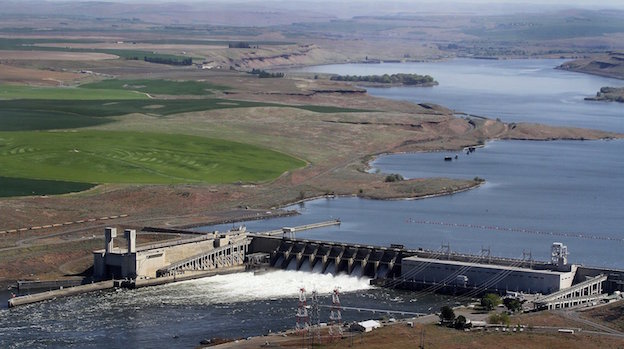forum
library
tutorial
contact

Agriculture Matters
by Rep. Mike SimpsonThe Jefferson Star, February 24, 2021
|
the film forum library tutorial contact |

|
Agriculture Mattersby Rep. Mike SimpsonThe Jefferson Star, February 24, 2021 |
I want to make it clear that if these dams are removed, then all stakeholders must be provided
with resources to replace the benefits they currently receive from them.
 WASHINGTON, D.C. -- Last week, I released for discussion a concept that could end the Northwest salmon wars. It would lock in a more certain future for agriculture, energy, transportation and communities and also give Idaho’s wild salmon and steelhead their best chance for survival.
WASHINGTON, D.C. -- Last week, I released for discussion a concept that could end the Northwest salmon wars. It would lock in a more certain future for agriculture, energy, transportation and communities and also give Idaho’s wild salmon and steelhead their best chance for survival.
Without question, the four Lower Snake River dams are very beneficial and valuable. They provide low-cost, clean, on-demand energy. They allow barges to reach ports in Lewiston-Clarkston providing low-cost shipping so that our growers are not captive to rail and trucking. Our communities benefit from ports, economic development, and recreation.
I want to make it clear that if these dams are removed, then all stakeholders must be provided with resources to replace the benefits they currently receive from them. In three years of studying this issue and over 300 meetings with stakeholders, I have come to believe that it would cost at least $33.5B to replace these benefits.
I am aware that saying "yes" is much harder. It is a leap of faith. But it would be a tragedy if future generations looked back and wished that the current Northwest leaders and stakeholders would have at least taken the time to explore this opportunity.
One of the reasons I believe this concept is worthy of review is because I am making it very clear that agriculture matters. So I am asking the Northwest delegation, governors, tribes and stakeholders if we can roll up our sleeves and come together to find a solution to save our salmon, protect our stakeholders and reset our energy system for the next 50-plus years on our terms? And at the same time, we can achieve a long-term solution that would provide certainty, security and legal protections for farmers in the Northwest. I believe we owe it to future generations to try.
Related Pages:
Columbia System Operations Feds respond to comments from bluefish, and bluefish responds back -- Worthwhile and sometimes funny, often sad.
learn more on topics covered in the film
see the video
read the script
learn the songs
discussion forum
